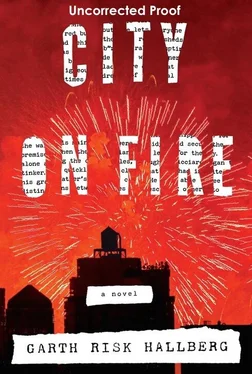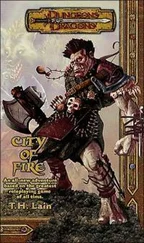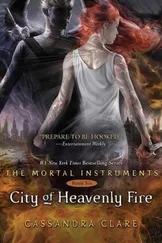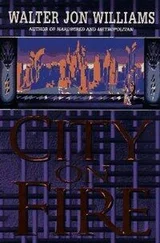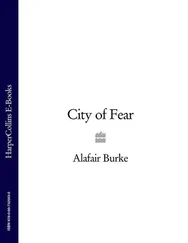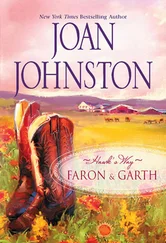Had Mercer ever been anything but? A gun-oil smell assaulted him as he removed the paper to reveal a grid of orderly white keys: a typewriter. “It’s electric. I found it in a pawnshop downtown, like new. It’s supposed to be much faster.”
“You shouldn’t have,” Mercer said.
“Your other one’s such a piece of junk. If it was a horse, you’d shoot it.”
No, he really shouldn’t have. Though Mercer had yet to find the gumption to tell William, his slow progress on his work-in-progress — or rather, lack thereof — had nothing to do with his equipment, at least in any conventional sense. To avoid further dissembling, he put his arms around William. The heat of his body penetrated even through the sumptuous coat. Then William must have caught a glimpse of the oven clock. “Shit. You mind if I turn on the TV?”
“Don’t tell me there’s a game on. It’s a holiday.”
“I knew you’d understand.”
Mercer tried for a few minutes to sit alongside and watch William’s beloved sport, but to him televised football was no more interesting, or even narratively intelligible, than a flea circus, so he got up and went to the kitchenette to do the other stations of the Yuletide cross. While the crowd whooshed and advertisers extolled the virtues of double-bladed razors and Velveeta shells and cheese, Mercer glazed the ham and chopped the sweet potatoes and opened the wine to let it breathe. He didn’t drink, himself — he’d seen what it had done to C.L.’s brain — but he’d thought Chianti might help put William in the spirit.
Heat built over the two-burner stove. He went to crank open the window, startling some pigeons that had settled outside on his winter-bare geranium box. Well, cinderblock, really. They fled down the canyons of old factories, now lost in the shadows, now exploding into light. When he looked over at William, the chesterfield was back in its box on the floor beside the futon, and the jumbo bag of gumdrops was nearly empty. He could feel himself turning into his mother.
They sat down at halftime, plates balanced on knees. Mercer had assumed that because there was a gap in the action William might turn the television off, but he didn’t even turn it down, or look away. “Yams are terrific,” he said. Like reggae music and Amateur Night at the Apollo, soul food was one of William’s elective affinities with negritude. “I wish you wouldn’t stare at me like that.”
“Like what?”
“Like I killed your puppy. I’m sorry if today fell short of whatever was in your head.”
Mercer hadn’t realized he’d been staring. He shifted his gaze to the tree, already desiccating in its aluminum stand. “It’s my first Christmas away from home,” he said. “If trying to preserve a few traditions makes me a fantasist, I guess I’m a fantasist.”
“Does it ever strike you as revealing that you still refer to it as ‘home’?” William dabbed a corner of his mouth with his napkin. His table manners, incongruous, beautiful, should have been an early clue. “We’re grown men, you know, Merce. We make our own traditions. Christmas could be twelve nights at the disco. We could eat oysters every day for lunch, if we wanted.”
Mercer couldn’t tell how much of this was sincere, and how much William was merely caught up in winning the argument. “Honestly, William, oysters?”
“Cards on the table, sweetheart. This is about that envelope you keep trying to shove into my field of vision, isn’t it?”
“Well, aren’t you going to open it?”
“Why would I? There’s nothing inside that’s going to make me feel better than I already do. God damn it!” It took him a second to realize that William was talking to the football game, where some unpleasantness announced the start of the third quarter. “Do you know what I think? I think you already know what’s in it.” As Mercer did himself, actually. Or at least he had his suspicions.
He went to pick up the envelope and held it toward the TV; a shadow nested tantalizingly within, like the secret at the heart of an X-ray. “I think it’s from your family,” he said.
“What I want to know is, how did it get here without a postmark?”
“What I want to know is, why is that such a threat?”
“I can’t talk to you when you get like this, Mercer.”
“Why am I not allowed to want things?”
“You know damn well that’s not what I said.”
Now it was Mercer’s turn to wonder how much he meant the words coming out of his mouth, and how much he just wanted to win. He could see in the margins the cookware, the shelf of alphabetized books, the tree, all physical accommodations William had made to him, it was true. But what about emotionally? Anyway, he’d said too much now to back down. “Here is what you want: your life stays just the same, while I twist myself around you like a vine.”
Pale points appeared on William’s cheeks, as they always did when the border between his inner and outer lives was breached. There was a second when he might have come flying across the coffeetable. And there was a second when Mercer might have welcomed it. It might have proven he was more important to William than his self-possession, and from grappling in anger, how easy it would have been to fall into that other, sweeter grappling. Instead, William reached for the new coat. “I’m going out.”
“It’s Christmas.”
“This is another thing we’re allowed to do, Mercer. We’re allowed to have time alone.”
But Solitas radix malorum est, Mercer would think later, looking back. The door closed, leaving him alone with the barely touched food. His appetite, too, had deserted him. There was something eschatological about the weak afternoon light, made weaker by the tree and the layer of soot that coated the window, and about the chill blown in through the crack he’d left open. Every time a truck passed, the frayed ends of the wine’s wicker sleeve trembled like the needles of some exquisite seismometer. Yes, everything, personally, world-historically, was breaking down. He pretended for a while to distract himself with the flux of jerseys onscreen. Really, though, he’d snuck back into his skull with tiny wrenches to make the kinds of adjustments that would allow him to continue living this way, with a boyfriend who would walk out on you on Christmas Day.
LATELY CHARLIE WEISBARGER,age seventeen, had been spending a lot of time on appearances. He wasn’t vain, he didn’t think, nor did he particularly dig his own, but the prospect of seeing Sam again kept sucking him back toward the mirror. Which was funny: love was supposed to carry you out beyond your own borders, but somehow his love for her — like the music he’d discovered that summer, or the purposeful derangement of his senses — had only ended up casting him back on the shores of himself. It was as if the universe was trying to teach him some lesson. The challenge, he guessed, was to refuse to learn.
He took an album from the stack by the stereo and put a penny on the stylus to keep it from skipping. The first Ex Post Facto LP, from ’74. Bonus trivia: released only months before the band’s breakup, it had also been the last. As power chords ripped through the speakers, he fetched a round black box from the closet shelf to which he’d banished the getups of his childhood. Dust clung to the lid, like skin on cold soup. Instead of clearing off when he blew on it, it swirled up and got all in his mouth, so he wiped the rest off with the nearest thing to hand, an old batting glove scrunched scrotally against the base of his nightstand.
Though he knew what was inside the box, the sight of Grandpa’s black fur hat never failed to send a jolt of lonesomeness right through him, like stumbling on a nest from which birds have flown. The Old Country Hat, Mom had called it — as in, David, Does he have to wear the Old Country Hat again? But for Charlie, it would always be the Manhattan Hat, the one Grandpa had worn a couple Decembers ago when they’d ridden into the City, just the two of them. Their cover story was a Rangers game, but what he’d made Charlie swear to keep his trap shut about was that they were going to the Radio City Christmas Spectacular instead. Brusque as hell, the old Bialystoker had been, shoving through the crowds. Honestly, Charlie didn’t see why all the cloak-and-dagger: no one was going to believe his grandpa would pay to see those shiksa hoofers anyway. Afterward, for an hour, maybe, they’d stood above the rink at Rockefeller Center, watching people skate. Charlie was underdressed for the cold but knew better than to complain. Finally, Grandpa reached over and opened his knobbly fist. Inside, embalmed in wax paper, was a butterscotch candy Charlie had no idea how he’d come by, like the last heirloom smuggled out of a war zone, more precious for having been hidden.
Читать дальше
